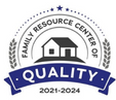As the Money Matters coordinator at The River Center, I have been fielding more calls from people seeking our free money coaching services this past year than I had in the previous two pre-pandemic years. More and more people are coming to The River Center needing help applying for the Special Nutrition Assistance Program, known as SNAP, indicating that more people are having difficulty putting food on the table due to the rising prices. However, the income limits for a standard family of 4 is just over $36,000/year so those who didn’t qualify or didn’t need SNAP pre-pandemic are having difficulty getting qualified because they make too much money for the program. According to the USDA’s Economic Research Service, grocery prices were 11.9% higher in May 2022 than they were in May 2021 while food-away-from-home (ie, eating out) was 7.4% higher in May 2022 compared to May 2021. For twenty years pre-pandemic, groceries and eating out costs were increasing at a pretty steady at a rate of approximately 3% per year There has been an increase in people looking for rental assistance as well. The average fair market rent in New Hampshire for a 3-bedroom rental is $1492. In Cheshire county, that average is $1692/month. Mandy Carter, our community resource specialist has calculated that a family of 4 with a household income of $36,000, which is the income limit for SNAP, will only have just over $600 left after paying rent and groceries. This is just $600 to pay for utilities, car payments, car insurance, and the cell phone bill. While many jobs are available in our region, the income is not enough to pay for a place to rent in the price range of her clients, according to Susan Howard of Monadnock Area Transitional Shelter with whom we work closely at The River Center. She has also helped people with resources for expenses that they normally can afford, but due to higher prices they have not been able to cover. The cost of oil is a major concern for this coming winter for many families and Howard cited an example where someone had been saving money to buy new tires, but had to use the money for heating oil. While we as individuals cannot control the inflation rate, there are steps we can take on our own to mitigate the effects of rising costs, but they involve putting your spending habits under scrutiny. Practical steps include tracking your spending for a month or two to see where your money is going and tracking your income and financial resources as well. Once you do this, you are able to create a cash flow budget that will help you track the timing of your income and expenses to make sure you have enough every week. At The River Center, we understand that this is often a scary and difficult undertaking for many people. Our money coaches can assist you in the process, finding a method of managing your household finances that works best for you so you don’t lie awake at night so much, wondering how you are going to make ends meet. They can also assess where you can make changes. Our community resource specialist can assist people in applying for and locating resources that will help to offset some of the rising costs of day to day living. If you would like to meet one-on-one with one of our volunteer money coaches to help you get started on your way to adapting to inflation or if you’d like to meet with our community resource specialist to talk about resources that you may be eligible for, contact us at The River Center at (603) 924-6800 or email [email protected] (This article also appeared in the July 26 Business Quarterly of the Monadnock Ledger Transcript)
0 Comments
Leave a Reply. |
|
Subscribe to our newsletter |
Copyright © 2024 by The River Center


 RSS Feed
RSS Feed



